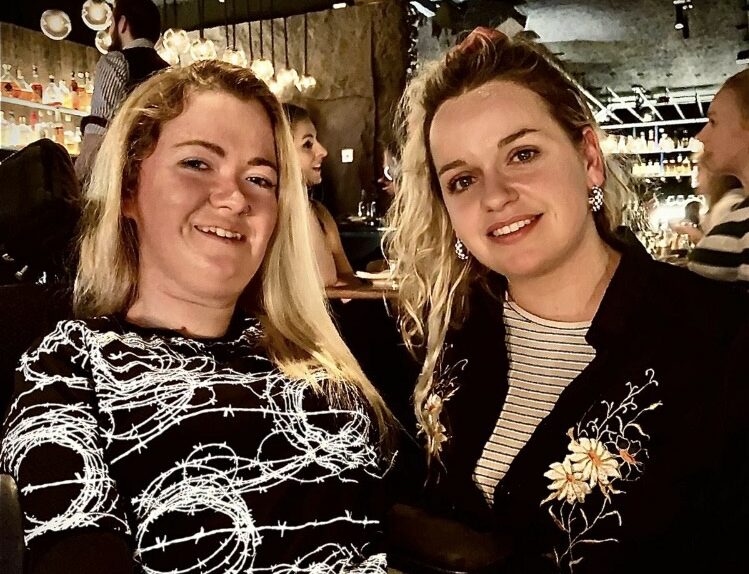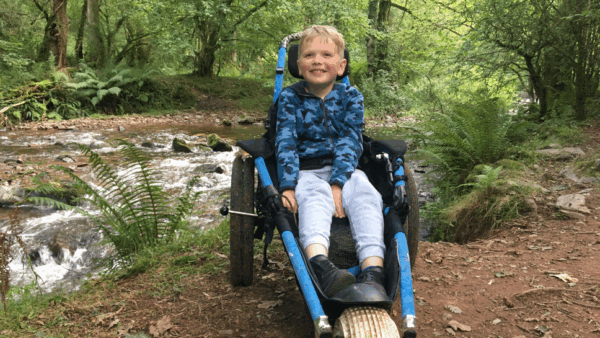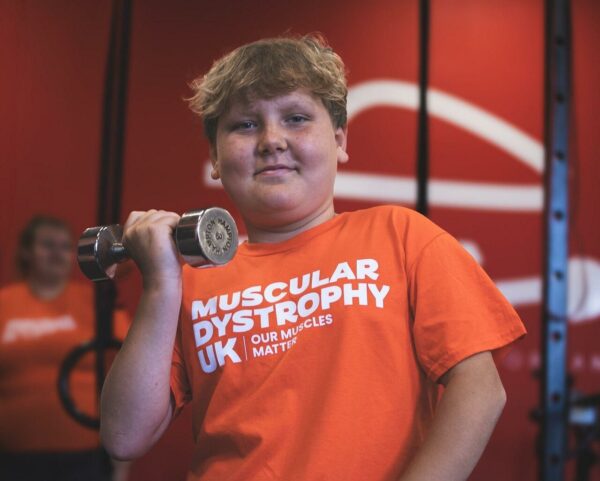To mark Carers Week, Ellie shares her story about why she became a carer; how this has helped her career as a psychotherapist, and what she enjoyed about the role.
“I worked as a carer while studying – it was the most rewarding job I’d ever had”

I’ve always been someone who loves doing new things and learning through life experiences. I tried my hand at quite a few jobs in my early 20s, from office jobs, to working on cruise ships, to running an art gallery in Hong Kong. When I decided to become an art psychotherapist, I looked for a job that I could do alongside my four-year masters degree that would be meaningful and personal. Caring seemed to be the ideal role. I never expected to still be working with the young woman six-years later alongside being a therapist. It was the first genuinely rewarding job I’d ever had.
You don’t need experience to become a carer
I started working with Becca, who has spinal muscular atrophy type two, at the end of 2017. She had recently moved to Winchester to do a degree and was living in halls. I was excited to have a person-centred role, but also a little nervous.
I had no previous care experience so the personal aspects like showering and helping her use the bathroom were quite daunting. Making sure the medical side of the care was right, such as giving medication, was also a big responsibility.
I received a lot of training on how to do everything practically, and it was very helpful that Becca was able to communicate what she needed and remind me how to do something if I was unsure. However, I was very aware, during my training, that the industry lacked mental health education and understanding. This something I would love to see more of for carers and adults with disabilities.
“There’re so many reasons I enjoy being a carer”
I essentially helped Becca with everything she wanted to do in life. We went to her university lectures together and I’d get things out of her bag and take notes if her arms got tired. We’d do laundry and meal prep together. Sometimes she just needed someone with her to pass a drink or open a pen. As we were both students, we spent a lot of the time in the library with her friends. Of course, there were more medical aspects of the job; medications to make, breathing equipment to clean, physiotherapy to do, but the role was much more than that.
There’re so many things I enjoy about being a carer.
“Since working together, we’ve been to concerts, drag shows, outdoor adventure weekends away with her work team. Last year we even went to Dubai for a week. We’ve done some pretty cool things.”
The long shifts were great as I could do two 12-hour shifts and have the rest of the week to focus on my degree. It was less pressure than working in sales; there were no measurement outcomes or quoters to meet, it was just about supporting Becca in doing everything she wanted to. I think it also helped that I’m an independent person, so I enjoyed doing waking night shifts. I was happy being given a list of tasks to do on my own and just be there to roll Becca over.
There are challenging sides to every job though. Handing over to another team member at the end of shift was sometimes difficult if we disagreed on how tasks should be carried out. As Becca’s carers were so involved in her personal life, it took a while to work out when it was okay to actively participate in something we were doing and when I should just be there in the background. I’d sometimes travel home with Becca to see her family for the weekend and stay in their home which was another type of interaction to navigate. But I learnt so much through all this.
“I learnt skills that will help me through life”
In such a personal role, I learnt how to maintain boundaries. When it’s right to have an opinion on something, and when it’s helpful just to listen. I also had to learn that sometimes you can’t make things better, but simply being there is enough. These are lessons that have helped me enormously since graduating as a psychotherapist.
“It was eye opening to gain a small insight into what life can be like for disabled people. Unless you work in the caring industry, you don’t notice things like the number of shops that aren’t accessible for a wheelchair user, or how many people stare at someone with a visible disability.”
I also learnt so much about personal attributes that many disabled people have to develop; how fast Becca had had to mature, how open and patient she had to be, and the willpower she had developed.
“More people should consider caring”
I’ve seen what an understaffed industry this is and how challenging Becca finds it to recruit new carers. If you’re someone that struggles to sit at a desk from nine to five, or doesn’t enjoy working in big teams, or simply wants a change in career that you’ll find rewarding, then you should consider becoming a carer. It’s a fantastic job.


